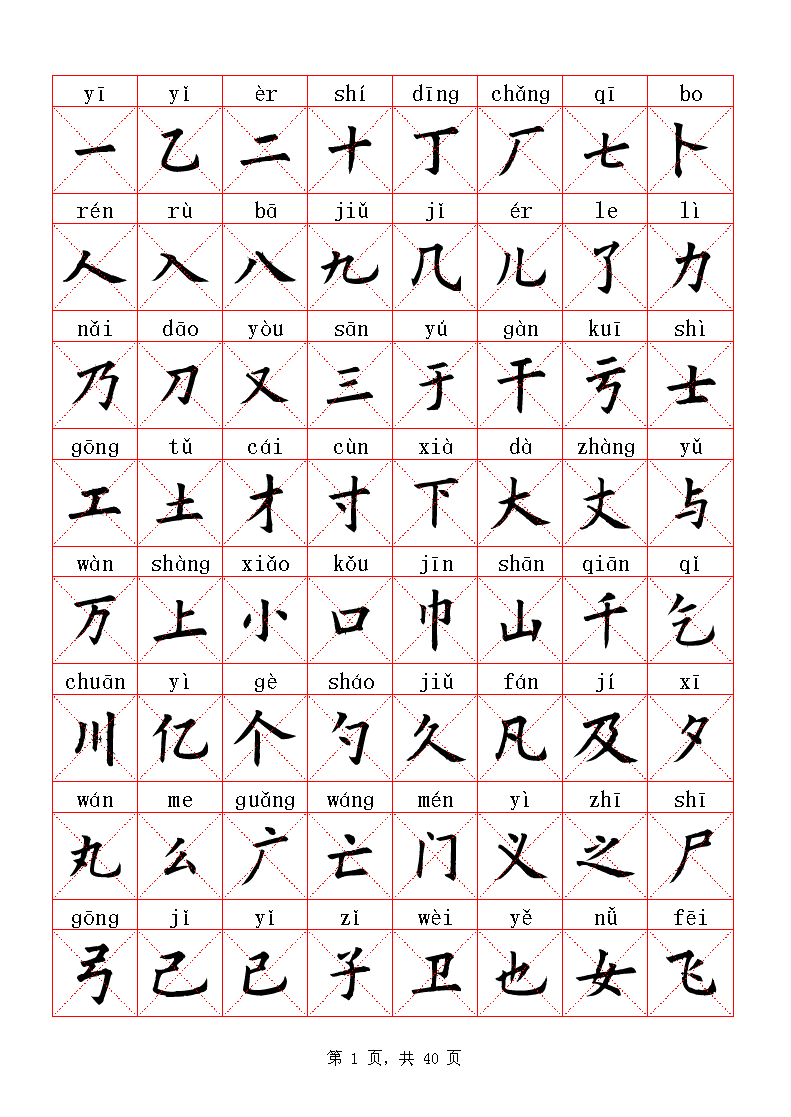Topic name translate to chinese: Discover the art of translating your name into Chinese and explore the cultural significance behind each character. This journey will not only provide you with a unique Chinese name but also connect you to a rich cultural heritage.
Table of Content
- How can I translate my name to Chinese?
- Understanding Chinese Name Translation
- Methods for Translating Names into Chinese
- Popular Tools and Websites for Chinese Name Translation
- The Significance of Chinese Characters in Names
- Case Studies: Translating Famous Names into Chinese
- Customizing Your Chinese Name for Specific Purposes
- YOUTUBE: How to Translate English Name into Chinese
- Common Challenges and Solutions in Chinese Name Translation
- Expert Tips for Choosing Your Chinese Name
- Cultural Considerations in Chinese Name Translation
- How to Use Your Chinese Name in Professional and Social Settings
How can I translate my name to Chinese?
Translating your name to Chinese can be done by following these steps:
- Understand the meaning of your name: It\'s important to know the meaning behind your name as it will help in finding the most suitable Chinese translation.
- Research Chinese name translations: Use reliable sources, such as reputable online dictionaries or language websites, to search for the Chinese equivalents of your name.
- Consider phonetic translation: If you are unable to find a direct translation with a similar meaning, you can opt for a phonetic translation that sounds similar to your name in Chinese.
- Seek expert advice: Consult with a native Chinese speaker or a professional translator who can provide accurate suggestions based on your name and its meaning.
- Finalize your Chinese name: Select the most suitable translation or phonetic equivalent for your name and ensure its cultural appropriateness.
Keep in mind that translating names to Chinese can be subjective as it involves cultural nuances and personal preferences. It is always advisable to consult an expert to ensure accuracy.
READ MORE:
Understanding Chinese Name Translation
Translating names into Chinese is a nuanced process that goes beyond mere phonetic conversion. It involves understanding the cultural significance and the characteristics of Chinese characters to choose ones that resonate with the individual\"s personality or desired attributes.
- Phonetic Translation: This method involves finding Chinese characters that sound similar to the foreign name. It\"s the most straightforward approach but requires careful selection to avoid unintended meanings.
- Meaningful Translation: Some choose to translate their names based on the meaning rather than the sound. This approach seeks characters that reflect the individual\"s traits, aspirations, or the original name\"s meaning.
- Cultural Significance: The characters chosen for a name can reflect desired qualities such as strength, beauty, intelligence, or other virtues esteemed in Chinese culture.
- Expert Consultation: Many turn to linguists or experts in Chinese culture to ensure their name reflects their identity accurately and positively in Chinese.
Understanding these elements is crucial for anyone looking to translate their name into Chinese, ensuring the name is not only phonetically pleasing but also culturally and personally meaningful.

Methods for Translating Names into Chinese
Choosing the right method to translate a name into Chinese is essential for ensuring the name carries the desired sound, meaning, and cultural significance. Here are the primary methods used:
- Direct Phonetics: This method directly translates the phonetic sound of the original name into Chinese characters that closely mimic the pronunciation. It\"s commonly used but requires attention to the tones in Chinese to ensure accuracy.
- Meaning-Based Translation: In this approach, the meaning of the original name is translated into Chinese, selecting characters that convey similar or complementary meanings. This method is popular for those who want their Chinese names to reflect their personal identity or values.
- Combination Method: A hybrid approach that combines both phonetic resemblance and meaningful translation. The first character(s) might follow the phonetic sound, and the last character could represent a quality or trait, marrying sound with meaning.
- Adoption of Chinese Equivalent: Some names have direct equivalents in Chinese, often historical or cultural figures whose names are well-known in China. This method is less personal but can connect an individual to Chinese heritage.
- Consultation with Experts: Professional translators or cultural consultants can provide personalized recommendations, ensuring the translated name is appropriate, meaningful, and phonetically sound.
Each method has its advantages and considerations, making the choice a personal decision based on how one wishes to be represented in Chinese culture.

Popular Tools and Websites for Chinese Name Translation
Finding the perfect Chinese name has been made easier with the advent of online tools and websites designed specifically for this purpose. Here are some of the most popular platforms:
- Google Translate: A quick tool for basic phonetic translations, although it may not always capture the nuanced meanings behind names.
- Babylon: Offers translations and meanings, providing a deeper understanding of the characters used in the name translation.
- Mandarin Tools: A dedicated website for Chinese name translation, offering options for phonetic and meaning-based translations.
- Chinese-Tools.com: Provides a variety of services including name translation, with options to explore the cultural significance of the characters chosen.
- Behind the Name: This website offers the etymology and history of names, allowing for a meaningful translation based on the original name\"s roots.
- China Highlights: Known for its personalized name translation service, giving users a choice between phonetic translations and those based on meanings or characteristics.
These tools and websites can serve as a starting point for anyone looking to translate their name into Chinese, offering a range of options from quick phonetic translations to in-depth explorations of name meanings.

The Significance of Chinese Characters in Names
In Chinese culture, names are imbued with meanings, aspirations, and traits that parents wish upon their children. The characters chosen for a name are as significant as the name itself, each bearing its own unique symbolism and history.
- Cultural Heritage: Chinese characters in names connect individuals to their cultural heritage, embodying centuries of linguistic and cultural evolution.
- Meaningful Representation: Each Chinese character represents a specific meaning or concept. Names are often composed to convey positive traits, virtues, or aspirations, such as wisdom, beauty, strength, or prosperity.
- Phonetic Harmony: The sound of the name, as determined by the characters selected, is also considered, with an emphasis on harmony and aesthetic appeal.
- Auspiciousness: Many Chinese names are chosen for their auspicious meanings, with the belief that the name can influence the bearer\"s fortune and destiny.
- Uniqueness: While some characters are common in names, parents often seek unique combinations that distinguish their child’s name from others, reflecting individuality and personal identity.
This deep significance makes the process of selecting a Chinese name a thoughtful and meaningful endeavor, emphasizing the importance of understanding each character\"s nuances.

_HOOK_
Case Studies: Translating Famous Names into Chinese
Translating the names of famous personalities into Chinese provides fascinating insights into the linguistic and cultural considerations of name translation. Here are some notable examples:
- Barack Obama: Translated as 奥巴马 (Ào bā mǎ), where the characters were chosen for phonetic similarity, reflecting the global influence and recognition of the former U.S. President.
- William Shakespeare: Translated as 莎士比亚 (Shā shì bǐ yǎ), a phonetic translation that attempts to capture the sound of the original name while also resonating with Chinese readers as a distinguished figure in literature.
- Leonardo DiCaprio: Translated as 利奥纳多·迪卡普里奥 (Lì ào nà duō · dí kǎ pǔ lǐ ào), which closely mirrors the phonetic sound of his name, showcasing the importance of maintaining recognizable phonetic elements for international celebrities.
- Marilyn Monroe: Translated as 玛丽莲·梦露 (Mǎ lì lián · mèng lù), which combines phonetic translation with a touch of elegance and glamour, reflecting her iconic status.
- Steve Jobs: Translated as 史蒂夫·乔布斯 (Shǐ dì fū · qiáo bù sī), with a focus on phonetic resemblance, highlighting how technological innovators are recognized and remembered in Chinese culture.
These case studies demonstrate the multifaceted approach to translating names into Chinese, balancing phonetic accuracy with cultural relevance and respect for the individual\"s identity.

Customizing Your Chinese Name for Specific Purposes
Creating a Chinese name that serves a specific purpose, whether for business, study, or cultural integration, involves thoughtful consideration. Here’s how to customize your Chinese name effectively:
- For Business: Select characters that convey qualities such as trustworthiness, prosperity, and success. For example, choosing characters like 信 (trust) or 财 (wealth) can be auspicious.
- For Study: Consider characters that reflect wisdom, learning, or perseverance, such as 智 (wisdom), 学 (study), or 励 (encourage).
- For Cultural Integration: Adopt a name that has a close phonetic resemblance to your original name but also reflects positive attributes or virtues esteemed in Chinese culture, like 美 (beauty) or 强 (strength).
- For Social Media: Choose a catchy, easy-to-remember name that might combine both phonetic elements and meaningful characters, catering to a more informal and broader audience.
- Seeking Expert Advice: Consulting with language experts or native speakers can provide insights into the nuances of character selection and ensure that your name aligns with your desired image and purpose.
Customizing your Chinese name requires a balance between personal identity, cultural respect, and the practicalities of the context in which the name will be used.

How to Translate English Name into Chinese
Discover the fascinating world of English-Chinese name translations in this captivating video! Uncover the hidden meanings and cultural significance behind your name, and gain a newfound appreciation for the beauty of cross-cultural communication.
Translate Your Name into Chinese
Unravel the mysterious art of name translation in this enlightening video! Dive into the rich history and symbolism behind names from different cultures, and witness the transformative power of language as names transcend borders and unite people.
Common Challenges and Solutions in Chinese Name Translation
Translating names into Chinese poses unique challenges, from ensuring phonetic accuracy to selecting appropriate characters. Here’s how to navigate these issues:
- Phonetic Discrepancies: The absence of certain sounds in Chinese can make phonetic translation difficult. Solution: Choose characters that closely resemble the original sound, considering tone and pronunciation.
- Unintended Meanings: Some characters may carry meanings that are not intended or are culturally sensitive. Solution: Research or consult experts to ensure the characters chosen convey positive or neutral meanings.
- Cultural Misinterpretations: Names meaningful in one culture may not hold the same significance in Chinese. Solution: Select characters that reflect universally positive traits or consult with native speakers for cultural appropriateness.
- Complexity of Characters: Some Chinese characters are complex and might be difficult for non-native speakers to write. Solution: Opt for simpler characters that are easier to learn and remember without compromising on meaning or sound.
- Maintaining Individuality: With many common names and characters, it can be challenging to create a unique name. Solution: Combine characters in novel ways or include less common characters that still convey the desired meaning and phonetics.
Addressing these challenges requires a careful balance of phonetic accuracy, cultural sensitivity, and personal expression, ensuring the translated name is both meaningful and practical.

Expert Tips for Choosing Your Chinese Name
Selecting a Chinese name is a meaningful process that reflects your identity and aspirations. Here are expert tips to guide you:
- Understand the Meaning: Every Chinese character has a unique meaning. Choose characters that reflect qualities or concepts important to you.
- Consider the Sound: Aim for phonetic similarity to your original name, but also consider how the name sounds in Chinese to ensure it is pleasing and appropriate.
- Look at Cultural Significance: Some characters are especially esteemed in Chinese culture. Incorporating such characters can imbue your name with a deeper cultural resonance.
- Seek Simplicity: A name that is easy to write and remember is beneficial, especially if you\"re learning Chinese or interacting frequently with Chinese speakers.
- Consult with Native Speakers: Feedback from native Chinese speakers can help avoid unintended meanings or associations and ensure the name is culturally appropriate.
- Personalize Your Name: While it’s common to use standard translations, consider customizing your name to make it unique and reflective of your personality or life story.
- Professional Help: For those looking for a name that perfectly balances sound, meaning, and cultural significance, consulting with a professional linguist or a naming expert can be invaluable.
By following these tips, you can choose a Chinese name that not only represents you well but also enriches your connection to Chinese culture.

Cultural Considerations in Chinese Name Translation
Selecting a Chinese name is a meaningful process that reflects your identity and aspirations. Here are expert tips to guide you:
- Understand the Meaning: Every Chinese character has a unique meaning. Choose characters that reflect qualities or concepts important to you.
- Consider the Sound: Aim for phonetic similarity to your original name, but also consider how the name sounds in Chinese to ensure it is pleasing and appropriate.
- Look at Cultural Significance: Some characters are especially esteemed in Chinese culture. Incorporating such characters can imbue your name with a deeper cultural resonance.
- Seek Simplicity: A name that is easy to write and remember is beneficial, especially if you\"re learning Chinese or interacting frequently with Chinese speakers.
- Consult with Native Speakers: Feedback from native Chinese speakers can help avoid unintended meanings or associations and ensure the name is culturally appropriate.
- Personalize Your Name: While it’s common to use standard translations, consider customizing your name to make it unique and reflective of your personality or life story.
- Professional Help: For those looking for a name that perfectly balances sound, meaning, and cultural significance, consulting with a professional linguist or a naming expert can be invaluable.
By following these tips, you can choose a Chinese name that not only represents you well but also enriches your connection to Chinese culture.

_HOOK_
READ MORE:
How to Use Your Chinese Name in Professional and Social Settings
Adopting a Chinese name can enhance your personal and professional interactions within Chinese-speaking communities. Here\"s how to integrate and use your Chinese name effectively:
- Professional Introductions: In business cards and professional introductions, include your Chinese name alongside your original name. This shows respect for Chinese culture and facilitates smoother communication.
- Email Signatures: Adding your Chinese name to your email signature when corresponding with Chinese-speaking contacts can be a thoughtful touch, demonstrating cultural sensitivity.
- Social Media: Utilize your Chinese name on social media platforms, especially if you are engaging with Chinese-speaking audiences. It can make your profile more approachable and relatable.
- Networking: When attending events or meetings with Chinese speakers, introduce yourself using your Chinese name. It can serve as a conversation starter and shows your appreciation for Chinese culture.
- Language Learning: Use your Chinese name in language classes or exchanges. It helps in immersing yourself in the learning process and encourages others to use it, enhancing your language acquisition.
- Cultural Events: Embrace your Chinese name at cultural festivals, workshops, or classes. It signals your openness to cultural exchange and can enrich your experiences.
By thoughtfully incorporating your Chinese name into various aspects of your personal and professional life, you can deepen your connection to Chinese culture and improve your interactions within Chinese-speaking communities.
Embarking on the journey of choosing a Chinese name opens up a world of cultural depth and personal identity. Embrace this opportunity to connect more deeply with Chinese culture and enrich your personal and professional life.











